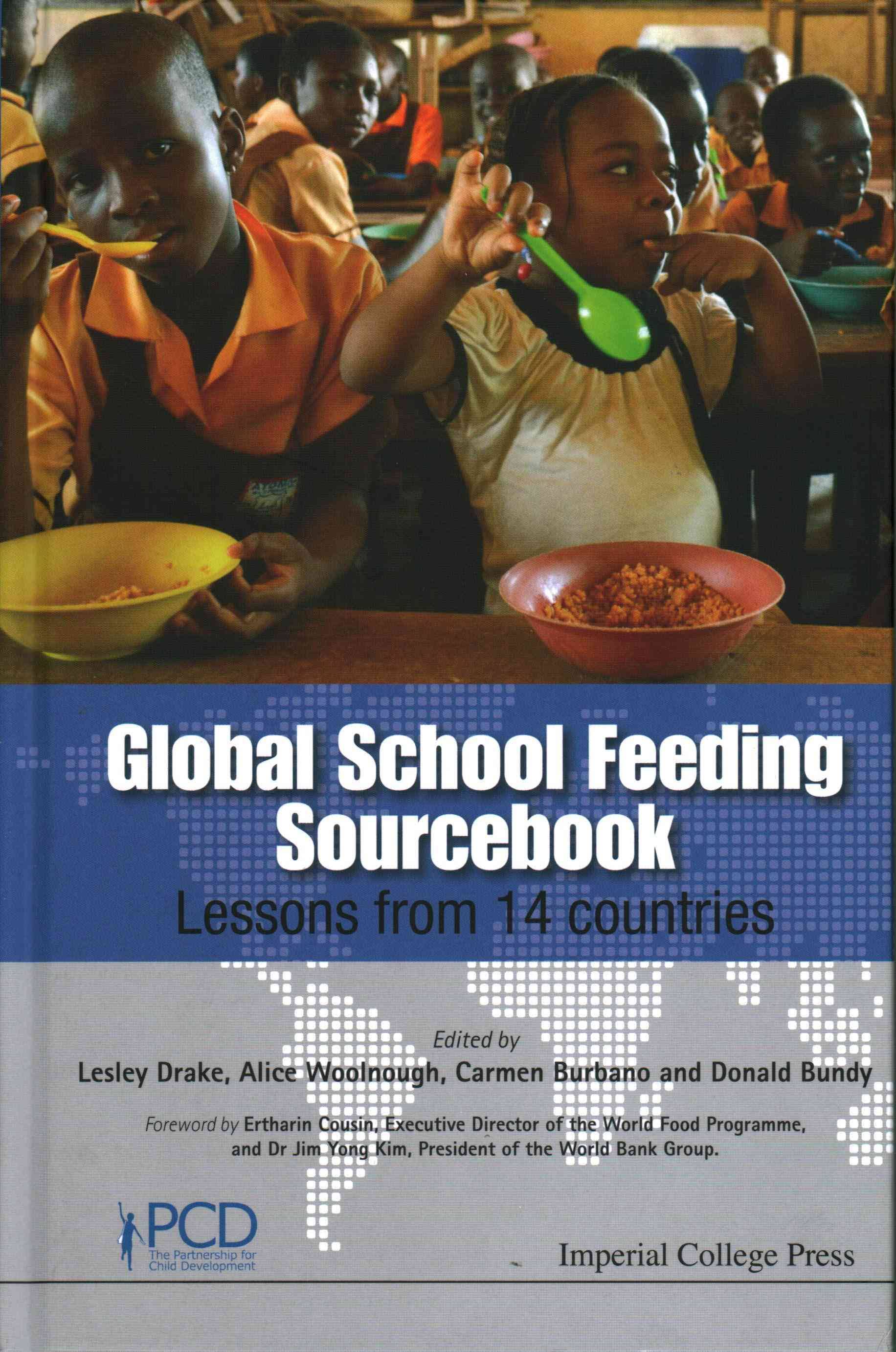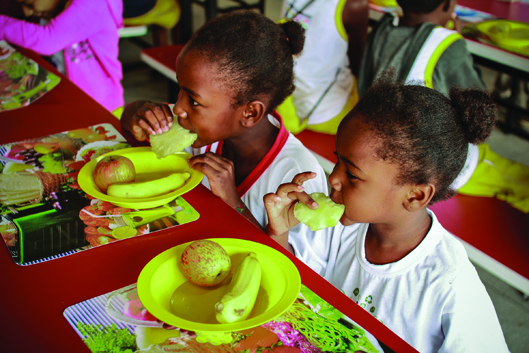Global School Feeding Sourcebook: Lessons from 14 countries
 About one in five children (nearly 368 million children) receive a meal at school every day, which amounts to a global investment of around US$75 billion per year. While there are many successful examples of school feeding programmes in high-income countries, governments in low and middle-income countries have called for guidance on how to strengthen and scale up their national programmes. This book shares examples of good practice in both design and service delivery, based on case studies in 14 countries (Botswana, Brazil, Cape Verde, Chile, Côte d’Ivoire, Ecuador, Ghana, India, Kenya, Mali, Mexico, Namibia, Nigeria and South Africa).
About one in five children (nearly 368 million children) receive a meal at school every day, which amounts to a global investment of around US$75 billion per year. While there are many successful examples of school feeding programmes in high-income countries, governments in low and middle-income countries have called for guidance on how to strengthen and scale up their national programmes. This book shares examples of good practice in both design and service delivery, based on case studies in 14 countries (Botswana, Brazil, Cape Verde, Chile, Côte d’Ivoire, Ecuador, Ghana, India, Kenya, Mali, Mexico, Namibia, Nigeria and South Africa).
What works?
There is no ‘one-size-fits-all’ recipe for success in school feeding, but certain key themes are featured in the book:
1. Design and implementation
• Although programmes are most frequently designed as social protection measures (to increase enrolment and gender equity), policy-makers are increasingly viewing school feeding as a means to tackle health and nutrition issues; in Ghana, nutritionally balanced school meals using local ingredients are digitally planned, and in Chile school meals are tied into obesity prevention and education through making healthy food choices.
 • Home-grown school feeding is an increasing trend; in Brazil, 30% of food for school meals must be procured from small, family-run farms by law.
• Home-grown school feeding is an increasing trend; in Brazil, 30% of food for school meals must be procured from small, family-run farms by law.
2. Policy and legal frameworks
• Effective programmes need a well-articulated policy and legal framework; every country reviewed had incorporated school feeding into its regulatory framework. For example, Mexico and South Africa included legislation in their constitutions.
3. Institutional arrangements
• Coordinating stakeholders across multiple sectors, ensuring enough government capacity at national and local levels, and creating mechanisms to ensure quality and accountability were all key mechanisms for success.
4. Funding and budgeting
• Identifying sustainable and protected sources of funding remains the key challenge for many low-income countries; partnerships with the private sector are increasing.
5. Community participation
• In Namibia, many communities are expected to provide fuel, cooking utensils and storerooms. This research shows that the most sustainable programmes respond to community needs, are locally owned, and incorporate some form of parental or community contribution, whether cash payments or in-kind donations of food or labour.
Despite the large number of school feeding programmes worldwide, the authors highlight a lack of information, such as impact evaluations and cost and financing arrangements. Future research should also generate evidence-based guidance on smallholder farmer engagement, local development, eating habits, and food quality and safety.
Reference
Drake, L; Woolnough, A; Burbano, C; Bundy, D 2016. Global School Feeding Sourcebook: Lessons from 14 Countries. London: Imperial College Press. © Lesley Drake. https://openknowledge.worldbank.org/handle/10986/24418 License:CC BY-NC.
